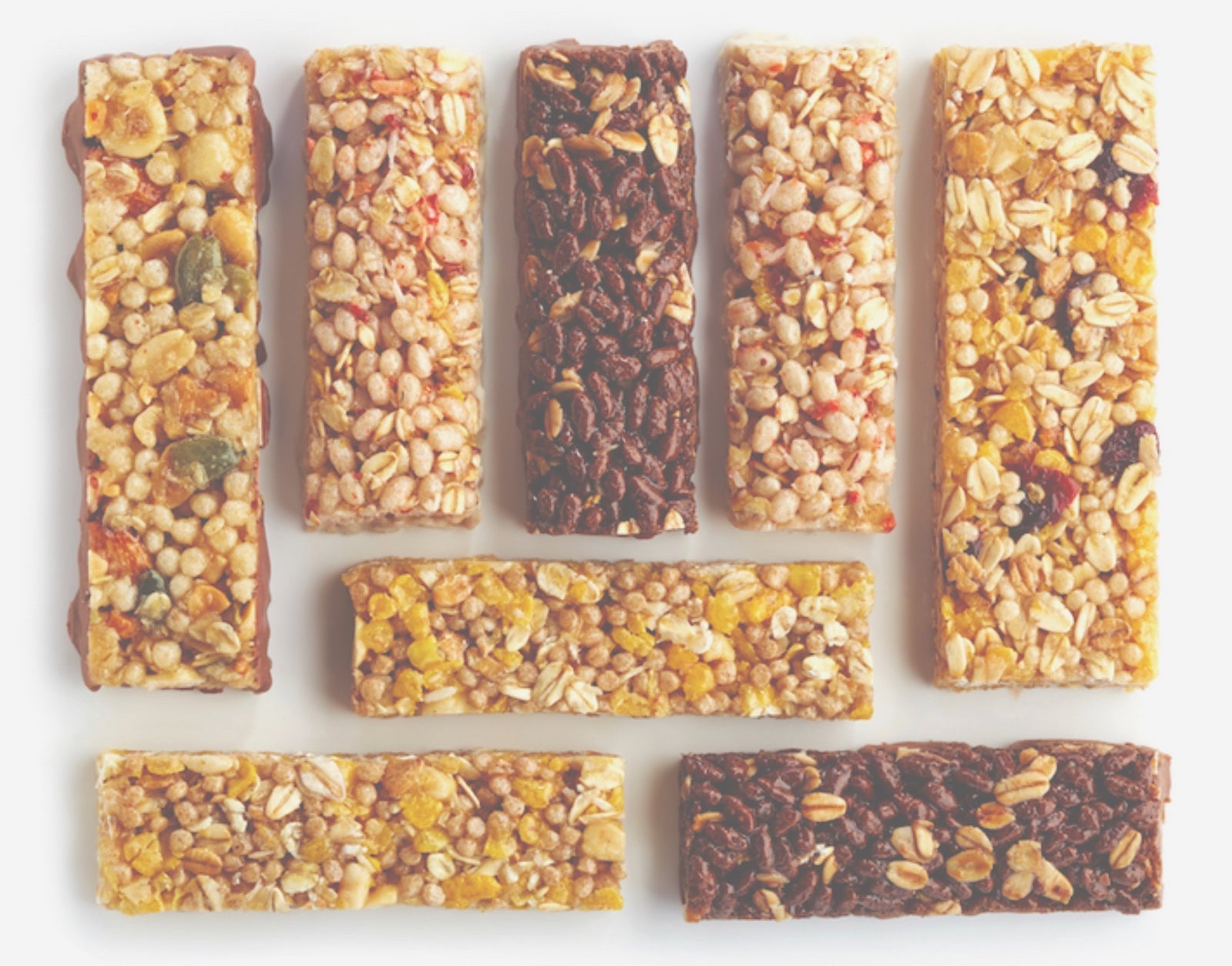Your Cart is Empty
Health tends to be a frequent topic among conversations with our friends, family, co-workers, and even perfect strangers, but the messaging can be quite contradictory at times. There are so many misconceptions when it comes to health, especially regarding what foods or meals are worthy of the “healthy” title.
“Oftentimes, certain foods wear a sort of ‘health halo’ by including many healthy ingredients, but, if eaten all together, can tip the scales by becoming either overly caloric or containing ingredients that may not be that good for us after all,” says Roger E. Adams, Ph.D., doctor of nutrition and owner of eatrightfitness. “While most of the ingredients may be healthy, when you put them all together, it is simply too much at once.”
What’s more: So many foods that are sitting in the “health” aisles at your local grocery store are incredibly misleading. In fact, the more health claims a food label has, the worse the food usually is for you, notes Gina Sirchio-Lotus, D.C., C.C.N., a certified functional medicine practitioner candidate with the Institute for Functional Medicine. “Veggies and fruits sit on the shelves without labels, but the packaged items that have wrappers announcing 'low-fat,’ 'low-sugar,' 'low-calorie,’ 'heart-healthy,' 'skinny,' or 'lite’ are often laden with chemicals, artificial sweeteners and preservatives, and devoid of nutrients, vitamins and minerals,” she explains.
Wondering what “health” foods you might be eating that are actually quite the opposite? Here, we asked nutrition pros to break down some of the most common foods that we tend to think of as healthy, but are surprisingly unhealthy.
Did you know that some protein bars are similar in nutritional profile to that of a candy bar?! To make an informed nutritional choice when seeking a protein, Kerkenbush recommends asking yourself why you're eating it: Is it a snack or meal replacement? “A meal replacement bar should be at least 300 calories and contain around 20 grams of protein, whereas a snack should be 100-200 calories and contain around 10 grams of protein,” she says. “Both types of bars should have at least 2-3 grams of fiber to create feelings of fullness.” She recommends looking for bars that contain no more than 4 grams of added sugar and no more than 4 grams of saturated fat.
We recommend the Sakara protein bars, specifically the Energy Super Bar, for its 10 grams of plant-based proteins and 0 grams of added sugars.

Coffee on its own is fine, and even has health benefits, but Sirchio-Lotus warns that adding creamers and flavors makes the sugar content go way up. “Using sugar and fat alternatives isn’t any better, as the inflammatory chemical load increases and simply gets worse,” she says. “The best option would be to drink a black coffee or one with organic dairy or a non-dairy creamer made from coconut or nuts, with minimal additives.”

Most yogurts do not fall under the category of low fat and low sugar—and there’s a good reason for that. “When the fat is removed from yogurt, chemicals and stabilizers are added in its place to keep it creamy in texture and prevent it from being watery and weird,” explains Sirchio-Lotus. Artificial sweeteners are also added in. “People choose them thinkingthey are safer and healthier, but the better option is the whole-fat, made-with-less sugar yogurt,” she adds.

We tend to associate anything oatmeal-related as healthy, but experts warn pre-flavored varieties typically carry way too much sugar to be worthy of their “healthy” title. “One packet of flavored instant oatmeal can contain 12 grams of sugar (3 teaspoons), whereas a serving of old fashioned oats has only 1 gram of sugar,” explains Becky Kerkenbush, M.S., R.D., fellow of the Academy of Nutrition and Dietetics. “Old fashioned oatmeal also packs more protein and fiber than instant oatmeal, which leads to feeling full longer.” Instead of the instant flavored packs, Kerkenbush recommends opting for old fashioned oatmeal flavored naturally with berries, cinnamon, nutmeg, or walnuts.
Honey is a delicious alternative to added sugars. With a drizzle of honey and some fruit you'll definitely satisfy that hankering for sweets. Add some nuts too, and you have yourself a serving of healthy fats. Floral-adorned oatmeal however, is not required.

Unless you have a health condition that warrants it (such as diabetes), experts recommend skipping artificially-sweetened candies—including chocolate—when possible.
“People tend to think that because something is sugar-free they can have more of it, without realizing there are still calories in the product,” explains Frances Largeman-Roth, R.D.N., dietitian and author of Eating in Color. “I’d much rather have an ounce of really good chocolate or an amazing caramel than twice as much of the artificially-sweetened stuff.” It’s also worth noting that many of the sugar alcohols used in these sugar-free products can lead to unpleasant side effects, including stomach troubles and other discomforts.

“Many of these frozen treats are marketed as yogurts, but may have more sugar than their ice cream counterparts,” says Dr. Adams. Instead, he recommends opting for real ice cream with a close eye on portion sizes. “Switch to a Greek yogurt with added fruit to save calories and improve the nutritional content of the snack and most certainly the taste,” he adds.

Just because a chip includes a vegetable in its ingredients list does not mean it’s healthy. In fact, regular potato chips contain a vegetable—potato! “These snacks are comparable to regular potato chips in terms of fat and calories,” warns Kerkenbush. Instead of buying the processed veggie chips at your local grocery store, she recommends making your own creations by thinly slicing vegetables and roasting them in the oven or using a food dehydrator.

